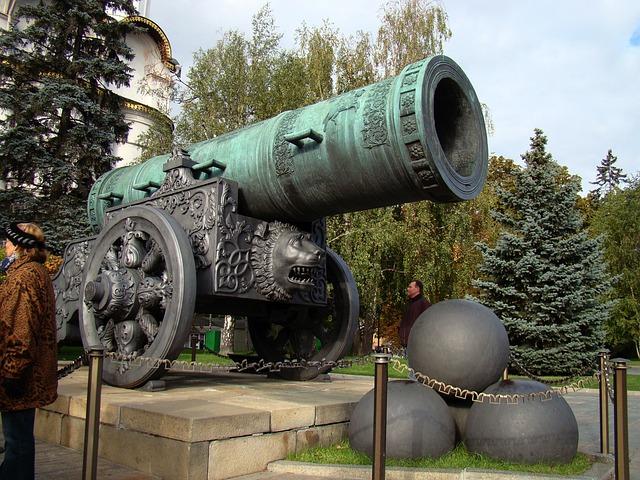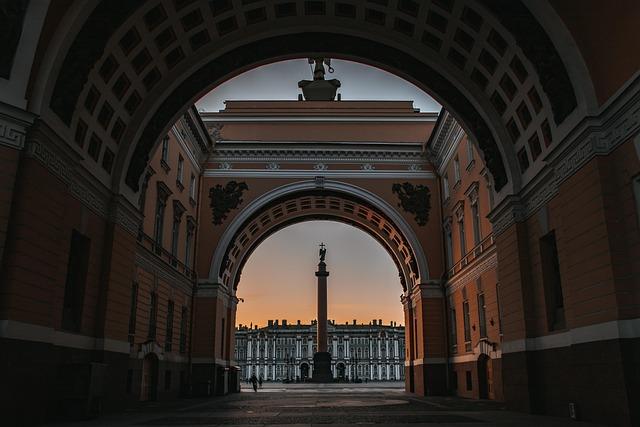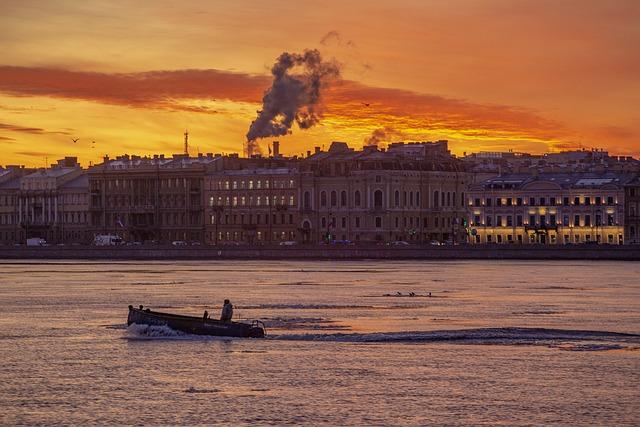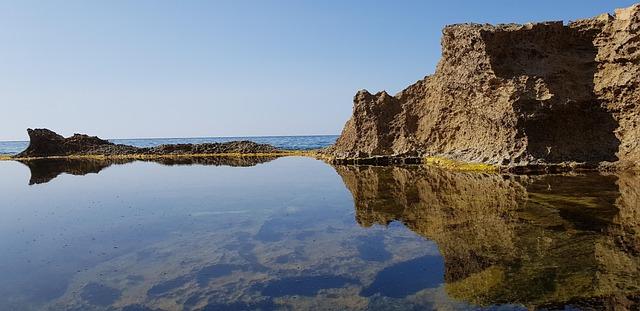In a notable shift in geopolitical strategy, Russia is redirecting its military and diplomatic attention towards Libya, following a series of setbacks in its ongoing operations in Syria. This recalibration underscores Moscow’s intention to bolster its influence in North Africa, a region of strategic importance amid rising tensions and shifting alliances. As conflict continues to rage in Libya,with multiple factions vying for power,Russia‚Äôs engagement could have significant implications for the balance of power in the region. This article explores Russia’s changed focus, examining the motivations behind its renewed interest in Libya and the potential consequences for both local stakeholders and the broader international order. As the landscape of military and diplomatic maneuvering evolves, understanding Russia’s role in libya could offer key insights into the future dynamics of conflict and cooperation in the area.
Russia’s Strategic Realignment: Analyzing the Shift from Syria to Libya
Recent developments indicate a crucial shift in Russia’s military and diplomatic strategies, as it appears to reallocate its focus from Syria to libya. Following significant setbacks in Syria, where the complexities of military engagement have compounded with international scrutiny and rising costs, Moscow is looking to reposition its influence in North Africa. key factors driving this realignment include:
- Resource Access: Libya’s vast oil reserves and strategic location offer Russia potential economic gains.
- Military Presence: Establishing a stronger foothold in Libya could help Russia counteract NATO and U.S. influence in the Mediterranean.
- Regional Partnerships: Collaboration with local factions may provide Russia with allies to bolster its geopolitical posture.
Moreover, the transition is underscored by recent engagements between Russian officials and various Libyan factions, signaling a commitment to deeper involvement in peace negotiations and reconstruction efforts. As part of this renewed interest, Moscow has also been keen on supplying military hardware and training to Libyan forces, expanding its sphere of influence. Factors shaping this approach include:
| Factor | Description |
|---|---|
| strategic Alliances | Strengthening ties with key Libyan players to enhance military cooperation. |
| Economic Interests | Seizing opportunities in the lucrative energy sector. |
| military Base Establishment | Potential plans to create permanent military positions in Libya. |

Implications for Regional Security: How Russia’s Focus on libya affects North Africa
The recent pivot of Russian interests towards Libya, following its challenges in Syria, holds significant implications for regional security across North Africa. As Russia seeks to expand its influence,the strategic positioning of military resources may alter existing power dynamics. This progress can lead to a number of shifts:
- Increased Military Presence: A bolstered Russian military footprint in Libya could escalate tensions with Western powers and regional actors, prompting a recalibration of defense strategies.
- Proxy Conflicts: The consolidation of Russian support for factions within Libya may ignite or intensify proxy conflicts, drawing in neighboring countries into a more complex security landscape.
- Resource Competition: Competition over resources such as oil and gas in Libya may become more pronounced, particularly as Russia seeks to secure economic footholds amid fluctuating global energy markets.
Furthermore, this renewed focus on Libya has the potential to ripple outwards, impacting migration patterns and stability in the wider Sahara-Sahel region. As Russia invests in security partnerships, it could embolden local regimes while concurrently undermining regional autoregulations. Consider the following scenario of increased instability:
| Risk Factor | potential Result |
|---|---|
| Militarization of Militant Groups | Heightened insurgency risks and localized conflicts |
| Diplomatic Fractures | Strained relations between North African nations and external powers |
| humanitarian Impact | Increased displacement and migration crises |

Military Partnerships: Assessing Russia’s engagement with Libyan Forces
In recent months, Russia has intensified its military collaboration with various factions in Libya, seeing it as a strategic pivot following difficulties faced in Syria. The presence of Russian mercenaries, particularly from the Wagner Group, has become increasingly pronounced in support of General Khalifa Haftar’s Libyan National Army (LNA). This partnership allows Russia to extend its influence in North Africa and control access to critical resources,especially oil. the build-up of military supplies, training programs, and tactical support underscores Russia’s commitment to solidifying its foothold in the region, while simultaneously exploiting libya‚Äôs ongoing instability.
Furthermore, the implications of Russian involvement in Libya can be observed in several key areas:
- Military Equipment Transfers: Advanced weaponry and military vehicles are being supplied to bolster the LNA’s capabilities against rival factions.
- Geopolitical Strategy: Strengthening ties with Libyan forces allows Russia to challenge NATO’s influence in the Mediterranean.
- Resource Control: Gaining access to Libya’s oil fields and natural resources is a focal point of Russia’s engagement.
| Aspect | Russian Involvement |
|---|---|
| Military Presence | Expansion of Wagner Group operations |
| Training Initiatives | Offering tactical training to LNA forces |
| Logistical Support | Supply chains for arms and resources |

Economic interests at Play: The Role of Energy Resources in Russia-Libya Relations
The strategic partnership between Russia and Libya is heavily influenced by the vast energy resources found within Libyan territory.With the prolonged instability in Syria hampering Russia’s military ambitions, the Russian government is increasingly redirecting its focus towards Libya, where both nations have converging interests in the energy sector. Libya, possessing some of the largest oil reserves in Africa, offers lucrative opportunities for Russia to expand its energy dominance, especially as global energy markets shift. Key factors shaping this relationship include:
- Oil and Gas Exploration: Russian companies are keen to exploit Libya’s untapped energy reserves. Collaborations in oil exploration could yield significant long-term benefits for both nations.
- Military Support: Russia’s military assistance to Libyan forces might be reciprocated with favorable terms for energy contracts, ensuring mutual economic benefits.
- Geopolitical Leverage: Strengthening ties with Libya enhances Russia’s standing in the Mediterranean, providing a counterbalance to Western influence in the region.
To comprehend the depth of this economic relationship, the following table illustrates the potential energy cooperation avenues between Russia and Libya:
| Area of Cooperation | Potential Impact |
|---|---|
| Joint Ventures in Oil Production | Increased output and revenue for both nations. |
| Arms for Resources Deals | Strengthened military ties and economic gains. |
| infrastructure Development | Enhanced logistics for oil exports, benefiting both markets. |
This evolving dynamic not only signifies a shift in military strategy for Russia but also highlights the importance of energy resources as a key driver in international relations within the region. As both countries navigate their respective circumstances, the synergy in energy interests is highly likely to pave the way for a more robust partnership that could reshape energy geopolitics in North Africa.

Recommendations for Western Policy: navigating the New Geopolitical Landscape in Libya
To effectively navigate the shifting geopolitical landscape in Libya, Western policymakers shoudl consider a multifaceted approach that addresses the complexities of regional dynamics while prioritizing stability and security. Engagement with local stakeholders is essential; fostering dialog with Libyan factions, including governmental bodies, tribal leaders, and civil society organizations, can help build a framework for sustainable governance. Moreover, the West must adopt a strategy that includes:
- Increased Diplomatic Efforts: Reinvigorate diplomatic channels with regional players to ensure a coherent policy that supports a unified Libya.
- Economic Partnerships: Establish partnerships that encourage economic development, focusing on infrastructure and resource management to enhance local resilience.
- Security Assistance: Provide tactical support and training for Libyan forces to counteract the influence of foreign mercenaries and paramilitary groups.
Cooperation with international organizations will also be vital. By collaborating with bodies such as the United Nations and the African Union, Western nations can amplify their efforts in mediating conflicts and supporting peace initiatives. It’s crucial for Western allies to keep a close eye on Russia’s increasing involvement, recognizing that it serves not only to bolster the Libyan military but also as a strategic move to enhance Moscow’s foothold in the region. This evolving situation calls for a careful balancing act:
| Focus Areas | potential Outcomes |
|---|---|
| Counter-terrorism | Reduced threats from extremist groups, paving the way for political stability |
| Humanitarian Initiatives | Improved living conditions and support for displaced populations |
| Thorough Peace Talks | A structured path towards reconciliation and power-sharing among factions |
This comprehensive strategy not only positions the West to counteract Russian influence but also aligns with broader goals of peace and stability in libya, preventing the escalation of conflict and fostering a sustainable environment for development.

The Conclusion
Russia’s strategic pivot towards Libya amidst its ongoing challenges in Syria reflects a broader recalibration of its foreign policy objectives in the region. By seeking to expand its influence in North Africa, Moscow aims to solidify partnerships that bolster its geopolitical stance while navigating the complex dynamics of Middle Eastern conflicts. The implications of this shift are significant, not only for the parties directly involved but also for the broader international community, which must grapple with the evolving landscape of power in both Syria and Libya. As Russia seeks to cement its role as a key player in thes theaters, the potential for increased military involvement and economic engagements could shape the future of regional alliances and conflicts. observers will be closely watching how this new focus unfolds and what it means for the stability of Libya and the wider North African region.







